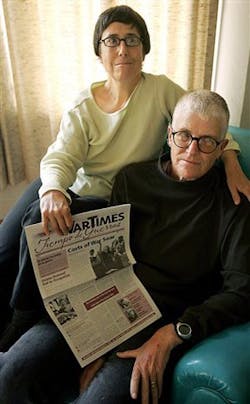Feds Agree to Pay ACLU Over No-Fly List
SAN FRANCISCO -- Two federal agencies agreed Tuesday to pay the American Civil Liberties Union $200,000 to settle a lawsuit brought to uncover information about the government's no-fly list, which bars suspected terrorists from airliners.
The government will compensate the ACLU for attorneys' fees, settling a lawsuit initiated by two San Francisco peace activists who were detained while checking in for a flight three years ago.
In October 2004, documents that the FBI and Transportation Security Administration provided in the lawsuit revealed the government has "two primary principles" but no "hard and fast" rules for deciding who gets put on the secret list.
The 301 pages of redacted documents, lodged in federal court in San Francisco in 2004, also said the secret list grew from 16 names the day of the Sept. 11 terror attacks to 594 by mid-December 2001. The list now is believed to carry thousands of names.
The documents were released as part of a lawsuit brought on behalf of Rebecca Gordon and Janet Adams, who co-publish a newsletter critical of the Bush administration. They were stopped while checking in for a San Francisco flight to Boston three years ago and detained until cleared for travel.
They and the ACLU invoked the Freedom of Information Act to demand that the government explain how people get on and off watchlists.
The FBI did not immediately comment on the settlement, and the TSA did not immediately return messages.
The agencies at first balked at supplying any information to the ACLU. But U.S. District Judge Charles Breyer, after privately reviewing secret government data, said the government was making "frivolous claims" about why it could not.
The ACLU decided to seek compensation, allowed under the FOIA, after it obtained all the information it believed it could get from the government.
One heavily redacted document says getting on a list is guided by two "primary" principles: Whether various intelligence agencies view an individual as a "potential threat to U.S. civil aviation," and whether the agency requesting a listing has provided enough information to identify the person to be flagged at check-in.
The documents disclosed that people are regularly removed from lists if the FBI is convinced they are not a threat.
<>
News stories provided by third parties are not edited by "Site Publication" staff. For suggestions and comments, please click the Contact link at the bottom of this page.
